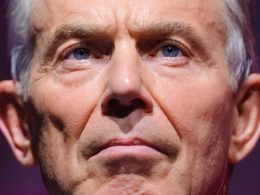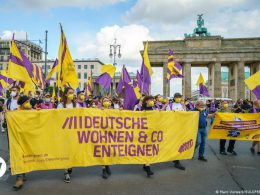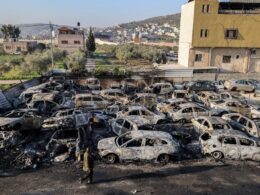The government of Brazil must bitterly curse its bad luck this week. In normal times in a Latin American country a visit from a Pope would bring an avalanche of good publicity and opportunities for unpopular establishment politicians to use the pontifical popularity to try and rehabilitate their dented standing with the broader populace.
No such luck on this occasion, however, for Dilma Rousseff, member of the Party of the Workers (PT) and President of Brazil. She is hosting Pope Francis as she is engulfed in a gigantic movement of people power against the neo-liberal policies of her government.
For more than a month now millions of ordinary Brazilians have been mobilising right across the country. And Brazil, home of the mighty Amazon river, is a gigantic country, about one hundred times the size of the island of Ireland and measuring 2,600 miles from west to east. Brazil has a population of 194 million, very many of whom are crowded into massive cities like Sao Paolo and Rio Da Janeiro which also include some of the worst shanty towns in the world.
The catalyst for the protests was an increase in public transport costs which had evoked strong opposition in a number of areas in May and early June. But when the municipal authority in the massive sprawl that is Sao Paolo raised the cost of metro and train tickets the protest escalated and on June 17 hundreds of thousands were marching all over the country with 200,00 in Sao Paolo alone. An initial brutal response from the police only intensified the anger and in the following days the movement spread and involved over 100 cities. This elemental force of people power forced the cancellation of the the fare increases in a desperate attempt by the authorities to de-escalate the protest.
This was a case of too late and far too little, however. Commentators have pointed out that the transport costs were only one of a long list of grievances of workers and the poor in Brazil. Not least is the huge disparity of wealth in the country. Horrific poverty and deprivation exist side by side with the shameless opulence of a minority. Millions live in the squalid shanty towns. The huge expenditure of taxpayers’ funds on building stadia for the World Cup in 2014 is seen as diverting resources from Health and Education, increasing the divide and further enriching construction magnates. One such construction boss is Cesar Mata Pires who, according to Bloomberg, has been made a billionaire through State contracts for World Cup infrastructure.
Brazil is regarded as a soccer mad country. Clearly however more fundamental aspects of their daily lives have been troubling millions of Brazilians. During the Confederations Cup games, on occasions there were more people outside the stadia protesting than inside watching.
The PT first came to power in 2003 after Lula da Silva won the presidency. Having been a steel worker and a founder of the party in 1980 which had adopted a very radical Left stand on economic issues, the working class of Brazil had huge hopes that radical measures would be taken to eliminate social evils from their society and institute a regime of equality and solidarity. They were bitterly disappointed, however, as Lula emulated former British Prime Minister Tony Blair in the implementation of a neo-liberal agenda that resiled from any radical measure that might threaten Brazilian capitalist interests. During his two terms of office his government and party were convulsed by constant corruption scandals which dismayed ordinary people who had hoped for real change.
The Pope has walked into a social maelstrom in Brazil. On his selection he was said to have opted ‘to stand with the poor.’ On Wednesday he urged people not to fall for ‘false idols such as money or power.’ However Catholic teaching supports the right of big business to accumulate private profit which is the economic basis for the massive inequality that grows apace every year in Brazil as elsewhere. The Pope’s appeals for equality and an end to greed will cut little ice with Brazil’s big capitalists or the agribusiness interests whose pressure to be able to continue clearing the Amazon rain forest is being legislated for by the Rousseff government despite the threat to the environment that this represents.
The current protest movement has been described by one analyst as involving ‘conflicting ideologies, has not a single political agenda or a recognisable leadership.’ Some right wing political parties are opportunistically participating. But the serious Left which consistently opposed the PT sell-out of its initial radical stance and its neo-liberal policies sees the current situation as a turning point, heralding a period of political radicalisation with the possibility of building a real movement for socialist change as the only solution to the deep problems of Brazilian society.











